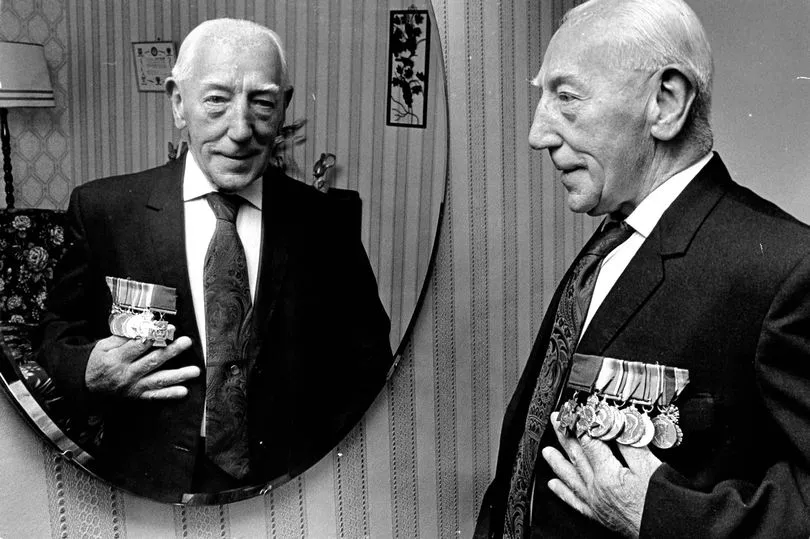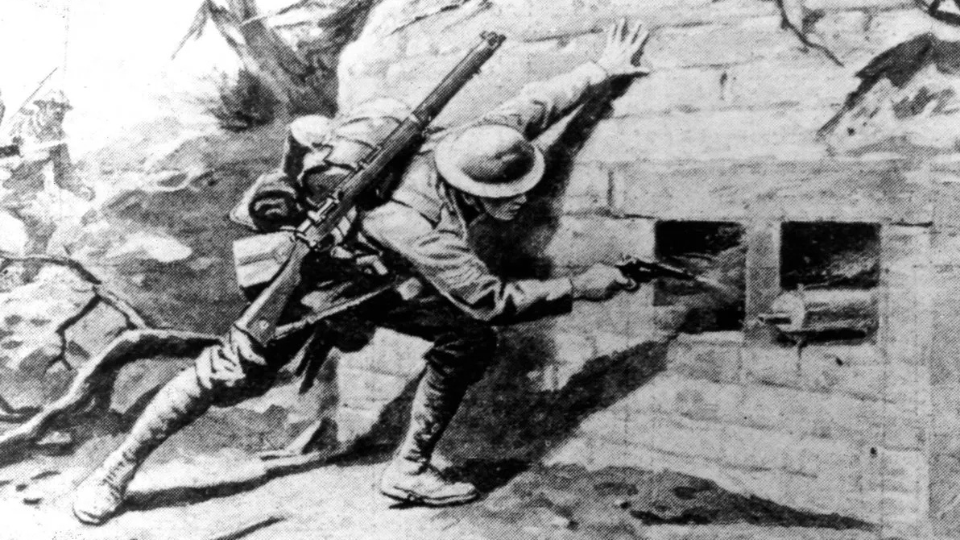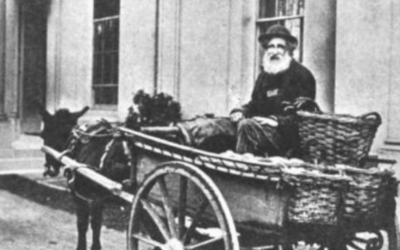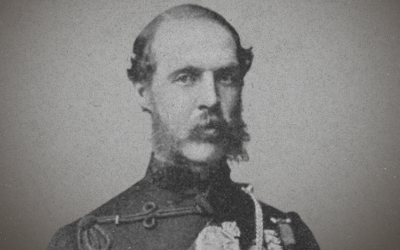From Fruit Cart to Front Lines
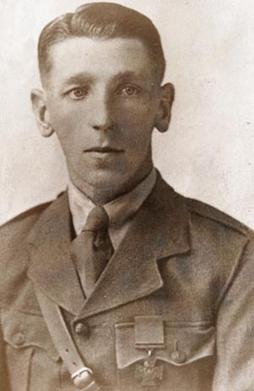
Edward Cooper was born in Stockton-on-Tees in May 1896, and left school at just 13 to begin life as an errand boy in his uncle’s butcher shop. By the outbreak of the First World War, he was running his own Co-operative Society fruit cart—but when the Army commandeered the Co-op’s horses for the war effort, Cooper suddenly found himself out of work and looking for a new purpose.
Although he was 18, he was declared too young to join the army; Cooper ‘adjusted’ his age and joined the King’s Royal Rifle Corps (KRRC)—a unit known for demanding the best of its men: independence, initiative, and swift, decisive action. He was posted to the 12th Battalion and deployed to France in 1915. He saw fierce combat at Loos, on the Somme, and in the grinding war of attrition on the Ypres Salient. His leadership potential was soon recognised, and he was promoted to Sergeant in March 1917.
Langemarck: Courage in the Crossfire
It was a few months later, on 16 August 1917 at Langemarck, that Cooper’s courage and initiative marked him out for the highest honour. His platoon had been pinned down by relentless machine-gun fire from German pillboxes, and their officer had been killed. Recognising that the angle of the pillbox’s fire left one narrow blind spot, Cooper led a small group of men forward through the storm of bullets.
Under fire, Cooper approached the pillbox and, with a revolver he had never used before taken from a dead officer, demanded the surrender of the German garrison. Unknown to him, a second exit had allowed enemy soldiers to flank him. In the confusion, the revolver discharged accidentally, startling the enemy back inside. With calm determination, Cooper switched to his rifle and stood his ground, demanding surrender once more. After he managed to subdue the next man who exited the pillbox, the German soldiers surrendered. Cooper had taken 45 prisoners and captured seven machine guns—almost single-handedly neutralising a threat that had stalled the entire battalion’s advance.

Despite this success, the enemy opened fire—killing some of their own men and wounding Cooper’s. Still undeterred, and with barely 20 men left of his platoon, he pushed forward to the next enemy position.
His Victoria Cross citation praised his “magnificent act of courage,” noting how his initiative not only saved lives, but likely prevented a serious setback for the wider operation.
Bravery Beyond the Medal
Cooper discovered he had been awarded the VC not from his commanders, but by seeing it reported in a newspaper he accidentally knocked to the floor as he passed through King’s Cross station while on leave.

Among other medals, Cooper also received the French Médaille Militaire for rescuing wounded men under shellfire near Ypres—although, in his typical humility, he downplayed the award. “Everyone makes a song and dance about the French decoration. I have no idea why it was awarded to me.”
Local Legacy of a Hero
After the war, Cooper returned to civilian life with the same quiet commitment he had shown in battle. He rejoined the Co-operative Society, where he worked until retirement. During the Second World War, he served in the Home Guard, rising to the rank of Major, and later dedicated himself to civic life as a Justice of the Peace, and a supporter of youth, church, and veterans’ organisations.
In July 1985, just weeks before his death, he was made a Freeman of the Borough of Stockton-on-Tees—a fitting honour for a man whose life embodied the Rifleman’s spirit: independent, determined, unassuming, and brave.
Edward Cooper VC died on 19 August 1985, aged 89. His Victoria Cross is on display at Preston Park Museum and Grounds, on loan from the Cooper family.
